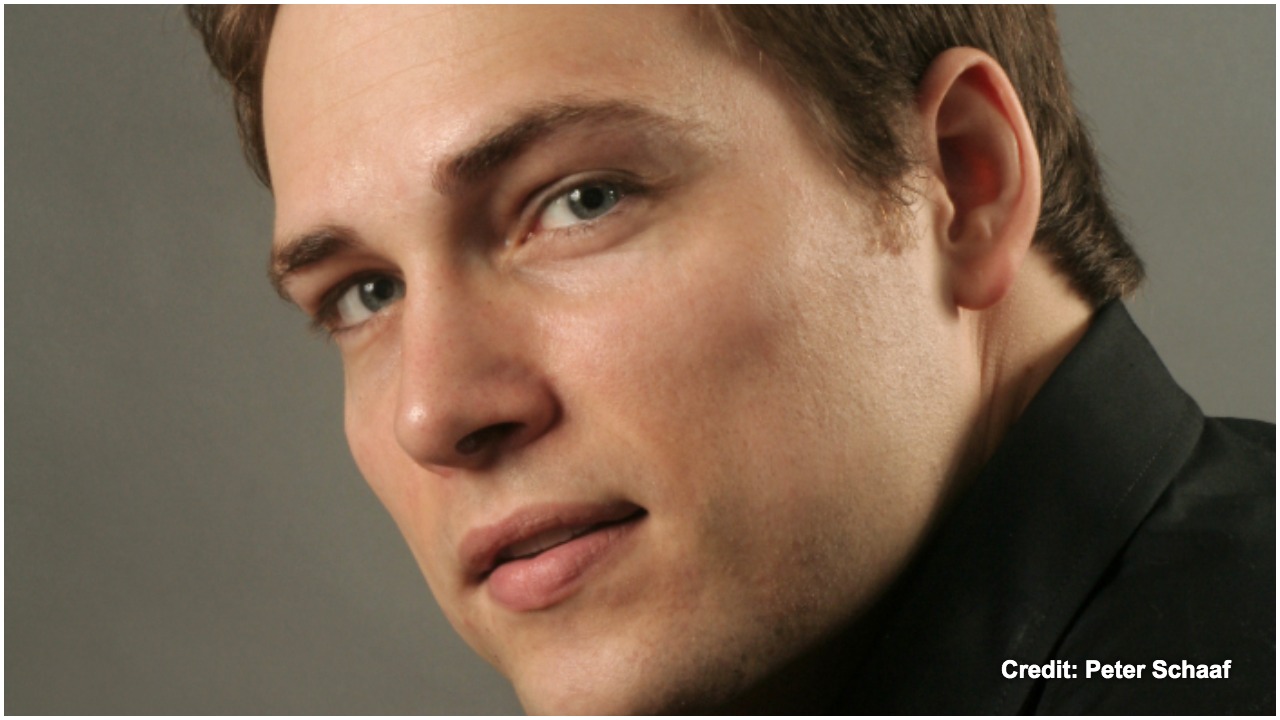
A Second Debut – How Transgender Baritone Lucas Bouk Made a New Beginning With a New Voice
By Greg WaxbergCredit: Karjaka Studios
“As more people transition, the [opera] industry is going to realize that transgender singers are just like any other singers. I was transphobic in my own beliefs and thought; ‘The voice will be less. It won’t be operatic in quality.’ There are some risks, of course, but I have the same lyric baritone range as a lyric baritone, and the problems I have are all baritone problems in terms of fine tuning the voice.”
Formerly a mezzo-soprano who lived as Mr. Liz, Lucas Bouk medically transitioned with testosterone during the COVID-19 pandemic and makes these observations as he resumes his career as a baritone. In fact, on April 30, 2022, a year after his voice changed, he is singing his first full operatic role as a baritone, with orchestra: Masetto in “Don Giovanni” with Teatro Grattacielo in Syros, Greece.
All of this is happening much sooner than Bouk expected. Although he realized five years ago that he was transgender, “I thought I was never going to transition with testosterone until I retired because the process would take a year or two, and I loved singing. I didn’t know what I was going to do, except keep singing mezzo. Singing has always been my escape,” he told OperaWire. “But after everything shut down in March 2020 and I didn’t sing for five months, I realized the pandemic was going to be around for a long time and there wouldn’t be much in-person work for a year.”
At that point, Bouk consulted his doctor and started testosterone in September 2020, taking advantage of time off from auditioning and performing.
Did his doctor have any reservations about Bouk being able to continue singing?
“No, and we decided that I would take the lowest dose that was good for my body, so I micro-dosed for the whole first year. I’ve only been on a standard dose of testosterone since September 2021,” he said. “[That small dose] was really useful, giving the voice and body time to change a little bit more slowly. And it kept the voice really healthy.”
Indeed, his voice did change gradually; nothing happened for the first couple of months after he began his treatment, then a “slight change to the bottom of the register” over the course of a few months. From March to April 2021, his voice shifted, and he was able to hum in a lower octave as his mezzo range disappeared. By May, he had added a full octave to his baritone range. In August, he returned to the stage for his professional debut as a baritone, singing “Perfect Boy” from the chamber opera “As One” with On Site Opera.
Beginning this past December, Bouk started to audition for stage roles. He also joined an online academy (Vincerò Academy) to study the roles of Schaunard in “La Bohème” and the Count in “Le Nozze di Figaro.” In February, Camerata Bardi Vocal Academy cast him as Masetto in “Don Giovanni” for the student-level performance that will mark his debut. The organization provided training and preparation during March in irs Online Lyric Laboratory, and the program culminates with the performance with Teatro Grattacielo.
“I’m making an investment in the training, mixed with paid singing [elsewhere] in ensembles and new music,” he explained. “The most important thing in this transition has been that it hasn’t mattered what I sing, just that I keep singing. Sing, sing, sing.”
When asked about resources for his transition to a transgender man, Bouk cites the book “The Singing Teacher’s Guide to Transgender Voices” by Liz Jackson Hearns and Brian Kremer (Plural Publishing Inc.), which he read before deciding to take testosterone. Singers considering a transition can also investigate Trans Voice Studio, a “by trans, for trans” studio based in New York City, and Callen-Lorde, a healthcare provider for the LGBTQ community.
“I want other people who are considering transitioning to know that it’s okay—you can have a successful vocal transition and begin a new career as yourself,” Bouk said. “Since I don’t know where my voice will ultimately settle, it’s one step at a time.”



